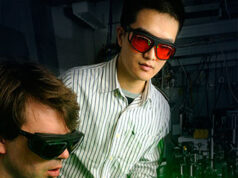When you hear the word ‘science’ what do you think of? Lab coats and test tubes? Telescopes and stars? Einstein? Dog-eared text books? While these represent various aspects of science, none of these truly embodies ‘science’ as a whole, because as a field it is so multi-faceted.
Science can be thought of as both a body of knowledge (the things we have already discovered), and the process of acquiring new knowledge (through observation and experimentation—testing and hypothesising). Both knowledge and process are interdependent, since the knowledge acquired depends on the questions asked and the methods used to find the answers.
The field of ‘science’ is often grouped into:
- natural science—life or biological science (the study of living organisms) and physical science (the study of the material universe including physics, chemistry, space science etc).
- social science—the study of society and people (such as anthropology, psychology)
- formal science—the study of logic and mathematics
- applied science—disciplines that rely on science and use existing scientific knowledge to develop new applications, such as in engineering, robotics, agriculture and medicine.
Both natural science and social science are known as empirical sciences. This means that any theories must be based on observable phenomena, reproducibility of results and peer review.










